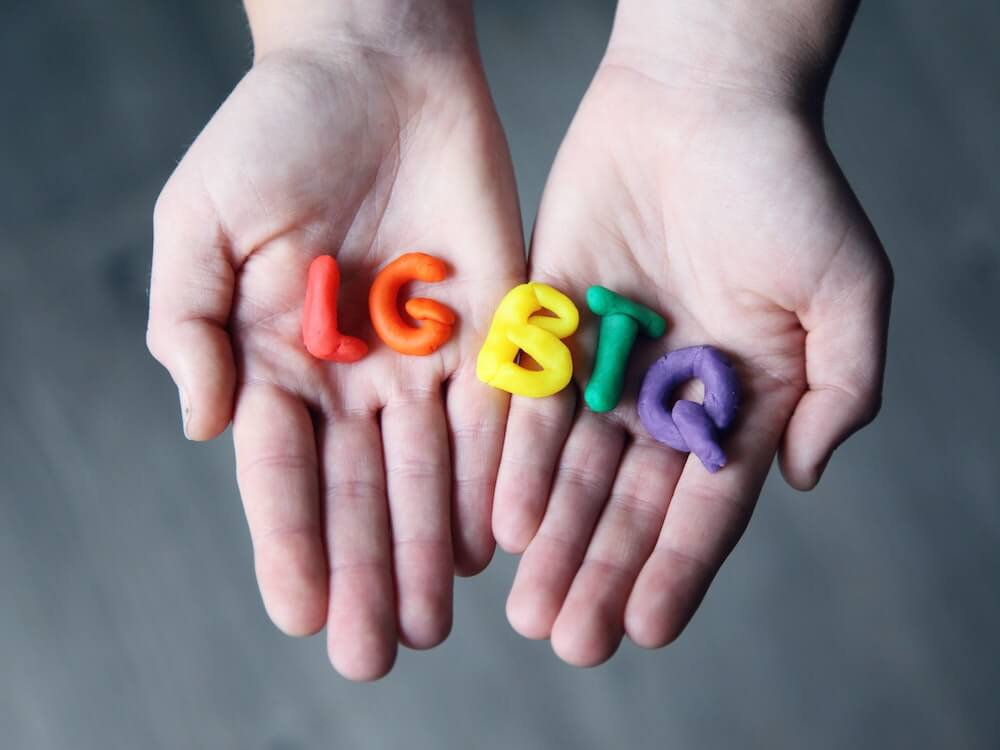INTRODUCTION
A vital life stage for a person is believed to be parenthood. The desire to parent or have children is a natural human want and one of the requirements for leading an intrinsically moral life. Prior to recently, homosexuality was viewed as a crime. Sec. 377 of the Indian Penal Code was passed by British colonial rulers before India’s independence, making any sexual activity among the queer community unlawful. This archaic law was being used to harass and physically harm anyone who did not conform to the stereotypical gender and sexual orientation binary and was becoming more outdated. Section 377 of the Indian Penal Code was decriminalized in 2018, making consenting homosexual relationships lawful. In a landmark decision, including eminent judges like Chief Justice Dipak Mishra and Dr. D.Y. Chandrachud, the five-judge Constitutional Bench ruled that Section 377 of the IPC was unconstitutional. This judgment was a pivotal liberating decision for the LGBTQ+ community. The Court implied that by doing this, LGBTQ individuals would be granted equal constitutional rights. However, considering the current situation, the legislation continues to be discriminatory. Equality before the law is guaranteed by Article 14 of the Indian Constitution. No individual living on Indian land will be denied equality before the law or equal protection of the rules, according to this clause. Even after this, due to the general ignorance of sexual identity and sexual orientation and the incredible difficulties experienced by individuals from the LGBTQ community, they continue to fight to get parental rights legally. It is unacceptable to stigmatize members of the Lgbtqia+ community that desire to have children. This exclusion frequently rests on old-fashioned ideas of what constitutes an average family and society.
THE CHALLENGES OF LGBTQIA+ IN ADOPTION PROCESS IN INDIA
The Hindu Adoption and Maintenance Act of 1956, the Guardianship and Wards Act of 1980, and the Juvenile Justice (Care and Protection of Children) Act of 2015 govern adoption in India. The Juvenile Justice (Care and Protection of Children) Act, 2015, and the Guidelines Governing Adoption of Children, 2015, regulate adoption laws in India for LGBTQIA people. Although the laws and regulations do not expressly forbid LGBTQIA people from adopting children, some Societal and legal obstacles may make it challenging for them to do so. An individual can adopt a child under the Juvenile Justice Act, regardless of sexual orientation. Furthermore, the law’s requirement that adoptive parents be emotionally, mentally, and physically secure has the potential to be interpreted in ways that are discriminatory toward LGBTQIA people. In 2020, the Delhi High Court ruled that the Juvenile Justice Act does not prohibit adoption by same-sex couples and that such discrimination violates the constitutional rights of LGBTQIA individuals. It is forbidden by the 2015 Guidelines Governing Adoption of Children for adoption agencies to discriminate against people based on their sexual orientation, there have been instances of discrimination against LGBTQIA people who are looking to adopt children. There have been some positive developments in recent years, but more needs to be done to ensure that LGBTQIA individuals are not discriminated against in the adoption process. In 2019, a case revolving around a lesbian couple came to light. This case involved a lesbian couple seeking to adopt a child. The couple faced discrimination from the adoption agency and ultimately could not adopt due to the agency’s refusal to consider same-sex couples as potential adoptive parents.
The Delhi High Court ruled that the adoption agency’s discrimination was unconstitutional and ordered the agency to reconsider the couple’s application. In the case of Sreeja Suresh Kumar v. District Child Protection Officer (2020), a transgender woman sought to adopt a child. Still, she was denied by the District Child Protection Officer due to her gender identity. The Kerala High Court held that the officer’s decision was discriminatory and ordered the adoption agency to reconsider the woman’s application.
STATUS OF LGBTQ+ COMMUNITY AS PARENTS IN INDIA & NEED FOR LEGAL RECOGNITION
A famous African proverb states, “It takes a village to raise a child.” It conveys that a healthy environment and safety are necessary for children to flourish, develop, and realize their hopes and dreams. Consequently, if the LGBT community can provide children with a secure and healthy environment, it can help them grow and prosper and can help them be a part of civilized society. They should be granted parental and adoption rights. Few repressive laws forbid queer individuals from adopting children and violate the fundamental freedoms protected by Articles 14, 15, and 21 of the Indian Constitution. Same-sex couples are not expressly prohibited from adopting under this statute. One cannot judge a parent’s parenting skills based on their marital situation or sexual orientation. The government must also update these issues and abstain from adopting cultural norms. Same-sex couples are not legally recognized, and marriage is not allowed. Therefore, they are not eligible to adopt children. However, there have been some positive developments in recent years. In 2020, the Delhi High Court allowed a same-sex couple to adopt a child. This was the first time a court in India recognized same-sex couples as legal parents in India.
Additionally, in 2018, the Indian government announced that single parents, including those individuals who identify as LGBTQ, can now adopt children. Discrimination and stigma against LGBTQ individuals are still prevalent in society, and they may face difficulties in accessing legal protections and recognition as parents.
CONCLUSION
Adoption laws in India, such as the HAMA and JJ Act, allow a single person to adopt a child. But, by ignoring the right to adoption, same-sex couples are subject to discrimination under the law. The adoption of children is a complex and challenging process in India. Discrimination and stigma against LGBTQIA people are still prevalent in society, and they may face difficulties in accessing legal protections and recognition as parents. Despite the recent developments, the situation for LGBTQ individuals as parents in India remains complicated and challenging.
Author’s Name: Sreejeeta Das (Symbiosis Law School, Hyderabad)


